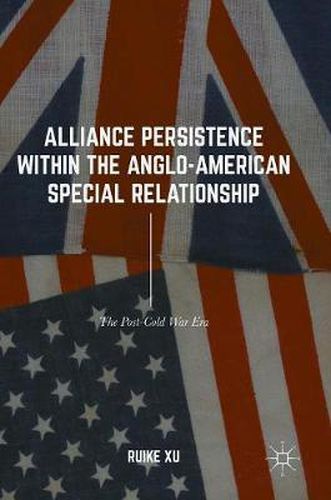Readings Newsletter
Become a Readings Member to make your shopping experience even easier.
Sign in or sign up for free!
You’re not far away from qualifying for FREE standard shipping within Australia
You’ve qualified for FREE standard shipping within Australia
The cart is loading…






This title is printed to order. This book may have been self-published. If so, we cannot guarantee the quality of the content. In the main most books will have gone through the editing process however some may not. We therefore suggest that you be aware of this before ordering this book. If in doubt check either the author or publisher’s details as we are unable to accept any returns unless they are faulty. Please contact us if you have any questions.
This book seeks to demystify the persistence of the Anglo-American Special Relationship (AASR) in the post-Cold War era by constructing a new theory of alliance persistence. This theory of alliance persistence not only has stronger explanatory power than the predominant model of interests and sentiments, but also opens a new way for understanding what factors have prevented the AASR from collapsing. This innovative new volume fills the gap in AASR literature by focusing on the important role of institutionalization in sustaining the AASR, a factor that has been significantly overlooked in existing academic research.
$9.00 standard shipping within Australia
FREE standard shipping within Australia for orders over $100.00
Express & International shipping calculated at checkout
This title is printed to order. This book may have been self-published. If so, we cannot guarantee the quality of the content. In the main most books will have gone through the editing process however some may not. We therefore suggest that you be aware of this before ordering this book. If in doubt check either the author or publisher’s details as we are unable to accept any returns unless they are faulty. Please contact us if you have any questions.
This book seeks to demystify the persistence of the Anglo-American Special Relationship (AASR) in the post-Cold War era by constructing a new theory of alliance persistence. This theory of alliance persistence not only has stronger explanatory power than the predominant model of interests and sentiments, but also opens a new way for understanding what factors have prevented the AASR from collapsing. This innovative new volume fills the gap in AASR literature by focusing on the important role of institutionalization in sustaining the AASR, a factor that has been significantly overlooked in existing academic research.